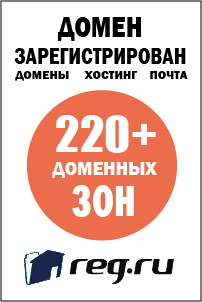Бранковский Ю.А.
Бранковский Юрий Анатольевич - директор по продукту,
Officer at GetOutfit, г. Минск, Республика Беларусь
Аннотация: в данной статье я привожу результаты исследования связи между факторами, влияющими на процесс принятия решений и эффективностью продакт-менеджмента как составляющей бизнес-процессов. Исследование не преследовало цель дать субъективную оценку факта ошибки и придать ему негативную или позитивную коннотацию, а последовательно изучало связи между процессами, которые протекают в человеческом мозге, факторами внешней среды и результатами принятых решений. На текущий момент нейронаука не дала однозначного ответа на вопрос, можно ли полностью управлять процессом принятия решения, основывая его на принципах логики, свободных от влияния эмоций, однако скорость развития этой научной дисциплины велика, и данная статья - очередной шаг в сторону ответа на вопрос о возможности абсолютной осознанности при принятии бизнес-решений. В статье я исследую вопросы нейронауки принятия решений, влияния стресса и гормонов на когнитивные способности человека и причины провалов в менеджменте.
Ключевые слова: управление продуктом, управление проектами, человеческие ресурсы, неврология, принятие решений.
NEUROSCIENCE OF DECISION MAKING IN PRODUCT MANAGEMENT
Brankovsky Yu.A.
Brankovsky Yuri Anatolyevich - Product Director,
OFFICER AT GETOUTFIT, MINSK, REPUBLIC OF BELARUS
Abstract: in this article I present the results of a study of the relationship between the factors influencing the decision-making process and the effectiveness of product management as a component of business processes. The study did not aim to give a subjective assessment of the fact of an error and give it a negative or positive connotation, but consistently studied the connections between the processes that occur in the human brain, environmental factors and the results of decisions made. At the moment, neuroscience has not given an unambiguous answer to the question whether it is possible to fully control the decision-making process, basing it on the principles of logic free from the influence of emotions, but the speed of development of this scientific discipline is great, and this article is another step towards answering the question of the possibility of absolute awareness when making business decisions. In the article, I explore the issues of the neuroscience of decision-making, the impact of stress and hormones on human cognitive abilities and the causes of failures in management.
Keywords: product management, project management, human resources, neurology, decision-making.
Список литературы
- Paul C. Nutt, Surprising but True: Half the Decisions in Organizations Fail, The Academy of Management Executive (1993-2005). 13. № 4. Themes: Structure and Desicion Making (Nov., 1999). Рp. 75-90 (16 pages), Published By: Academy of Management.
- Product School, The Future of Product Management Report, 2021 [Электронный ресурс]. Режим доступа: https://productschool.com/future-of-product-management/ (дата обращения: 15.02.2022).
- Hrobjartsson Asbjorn and Gotzsche Peter C. (2001). “Is the Placebo Powerless? An Analysis of Clinical Trials Comparing Placebo with No Treatment,” New England Journal of Medicine. 344(21). 1594–1602.
- Price Donald D. et al. (1999). “An Analysis of Factors that Contribute to the Magnitude of Placebo Analgesia in an Experimental Paradigm,” Pain 83(2). 147–156.
- Shiv Baba (et al.). Decision Neuroscience, Marketing Letters, December Volume 16. Issue 3. Рp. 375‐386.
- Wager Tor et al. (2004). “Placebo-induced Changes in fMRI in the Anticipation and Experience of Pain,” Science 303. 1162–1167.
- Megan L. Head ,Luke Holman,Rob Lanfear,Andrew Kahn,Michael D. Jennions, The Extent and Consequences of P-Hacking in Science, Published: March 13, 2015. [Электронный ресурс]. Режим доступа: ht tps://doi.org/10.1371/journal.pbio.1002106 / (дата обращения: 15.02.2022).
- Benedetto De Martino, Dharshan Kumaran, Ben Seymour, Dolan Raymond J. Frames, Biases, and Rational Decision-Making in the Human Brain, Science, Publisher: The American Association for the Advancement of Science, Date: Aug 4, 20
- World Economic Forum, The Future оf Jobs Report, 2020, Pages: 163. p. .. [Электронный ресурс]. Режим доступа: https://www.weforum.org/reports/the-future-of-jobs-report-2020/in-full/ (дата обращения: 15.02.2022).
- 10. Arrow K.J. Econ. Inq.20. 1 (1982).
- Tversky А., Kahneman D., Bus J. S. 251 (1986).
- Neumann J. von, O. Morgenstern. Theory of Games and Economic Behavior (Princeton Press, Princeton, NJ, 1944).
- Pabst Stephan, Brand Matthias, Wolf Oliver Stress and decision making: A few minutes make all the difference, Department of Cognitive Psychology, Institute of Cognitive Neuroscience, Ruhr-University Bochum, Cognition, University of Duisburg-Essen, Erwin L. Hahn Institute for Magnetic Resonance Imaging.
- Selye 1998. A syndrome produced by diverse nocuous agents. 1936. J Neuropsychiatry Clin Neurosci 10:230–231.
- Howarth Clare, Gleeson Padraig and Attwel David. Updated energy budgets for neural computation in the neocortex and cerebellum, Brain Research Centre, Department of Psychiatry, University of British Columbia, Vancouver, Brit Columbia, Canada; Departments of Neuroscience, Physiology and Pharmacology, UCL. London, UK.
- Eduardo B. Andrade Dan The enduring impact of transient emotions on decision making, University of California, Berkeley; Duke University.
- Thayer Julian , Åhs Fredrik, Fredrikson Mats, Sollers John J., Wager Tor D. A meta-analysis of heart rate variability and neuroimaging studies: Implicationsfor heart rate variability as a marker of stress and health, Neuroscience and Biobehavioral Reviews.
- .Dworak Markus, McCarley Robert , Kim Tae, Kalinchuk Anna V., Basheer Radhika. Sleep and Brain Energy Levels: ATP Changes during Sleep, J Neurosci. 2010 Jun 30; 30(26): 9007–9016. PMCID: PMC2917728.
- Amy C. Edmondson, Strategies for Learning from Failure, Harvard Business Review, April,
Ссылка для цитирования данной статьи
|
Тип лицензии на данную статью – CC BY 4.0. Это значит, что Вы можете свободно цитировать данную статью на любом носителе и в любом формате при указании авторства. |
||
|
Бранковский Ю.А. НЕЙРОНАУКА ПРИНЯТИЯ РЕШЕНИЙ В МЕНЕДЖМЕНТЕ ПРОДУКТОВ// Вестник науки и образования № 2 (122), 2022 [Электронный ресурс]. URL: http://scientificjournal.ru/images/PDF/2022/122/kategorii-pajshchikov-v.pdf Печатная версия. Бранковский Ю.А. НЕЙРОНАУКА ПРИНЯТИЯ РЕШЕНИЙ В МЕНЕДЖМЕНТЕ ПРОДУКТОВ // Вестник науки и образования № 2 (122), 2022, C. {см. журнал}. |
||
Поделитесь данной статьей, повысьте свой научный статус в социальных сетях
| Tweet |



